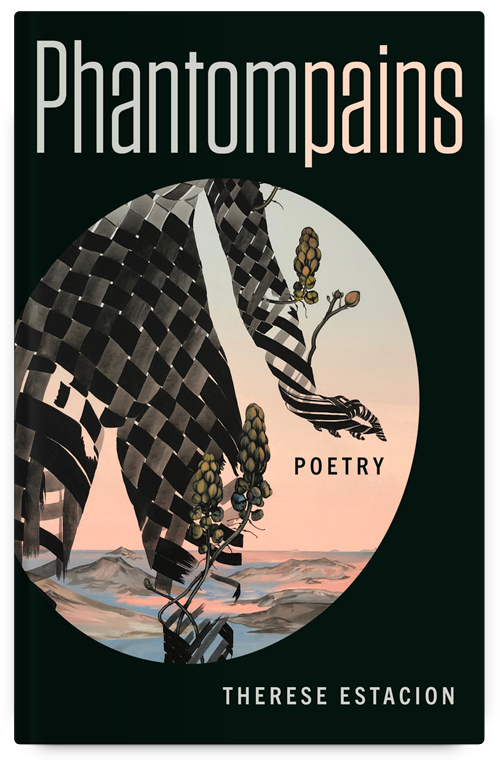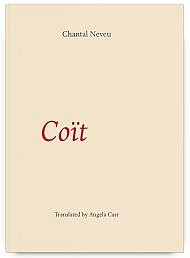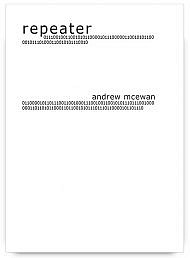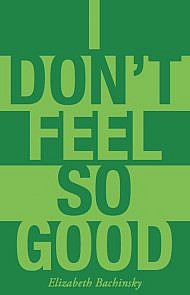Audiobook Sample:
Therese Estacion survived a rare infection that nearly killed her, but not without losing both her legs below the knees, several fingers, and reproductive organs. Phantompains is a visceral, imaginative collection exploring disability, grief and life by interweaving stark memories with dreamlike surrealism.
Taking inspiration from Filipino horror and folk tales, Estacion incorporates some Visayan language into her work, telling stories of mermen, gnomes, and ogres that haunt childhood stories of the Philippines and, then, imaginings in her hospital room, where she spent months recovering after her operations.
Estacion says she wrote these poems out of necessity: an essential task to deal with the trauma of hospitalization and what followed. Now, they are demonstrations of the power of our imaginations to provide catharsis, preserve memory, rebel and even to find self-love.
Praise for Phantompains:
“Phantompains is a text of rare power, birthing a brave new world flush with pain, lust, drugs and the uterus. Estacion’s ‘Eunuched Female’ is a masterpiece: utterly indelible.” —Tamara Faith Berger, author of Queen Solomon
“I love Therese Estacion’s book. I love its humour, clarity, irreverence, and rage. It’s not a book about triumph (though she has triumphed), or perseverance (though she has persevered), or courage (though she has it). To me, it is a book about vision and reckoning, descent and return. Therese Estacion plunged into an abyss—found suffering, dehumanization, terror—and when she emerged, she chose to make radically confrontational art. Phantompains is the cosmic result of her dwelling, and her passage. In her words, “she became the subject”—I think she also became the seer.” —Sara Peters, author of I Become a Delight to My Enemies
Press Coverage:
Most Anticipated: Our 2021 Spring Poetry Preview —49th Shelf
“Documenting her experience through the lyric, Estacion’s book-length poem aches to understand what it is she has lost, and how to wrestle her way to how best to move forward, fully aware that the shadow of these losses might never fully disappear. The upending trauma and loss Estacion articulates in the opening sequence, as well as throughout the book, is palpable, powerful and unmistakable.” —rob mclennan’s blog
Phantompains Poetry Collection Takes on Disability, Grief and Life: An Interview with Therese Estacion —Avery Zingel, CBC North
Phantompains: An Interview with Therese Estacion —All Lit Up
Poets in Profile with Therese Estacion —Open Book
Filipino writer shares experiences in new book, ‘Phantompains’ —Paula Saraza, OMNI Filipino TV
Therese Estacion battled back from terrible loss, rediscovered herself through poetry and just published one of the best collections of the year —Briony Smith, Toronto Star
55 Canadian Poetry Collections to Check Out in Spring 2021 —CBC Books
How writing helped me heal after an infection took my limbs: A Television Interview with Therese Estacion —Cityline
The CBC Books spring reading list: 32 great Canadian titles to read in spring 2021 —CBC Books
“Phantompains, is unique in its topic and content. I can’t think of anyone who has written poetry around a life-threatening infection, or around a hysterectomy that resulted from it. And I certainly can’t think of anyone who’s written so openly about the hell that is amputation… Amputees often need to fight to be seen, and ableism is a real issue that needs to be openly discussed. Therese Estacion’s Phantompains gets to the heart of all of these issues with a poet’s deft touch and skill. It’s a brilliant debut book of poems, and I’m looking forward to seeing what comes next.” —Kim Fahner, periodicities
What We’re Reading: Phantompains —Sarah Wang, Vancouver Writers Fest Blog
Poet Therese Estacion Survives Rare Infection —Season 2, Episode 2, 2 Lives Podcast
“This collection is about trauma, healthcare, loss, culture, bodily autonomy, and much more. This collection blew me away… I am so glad this book exists.” —Emma Rhodes, The Miramichi Reader
Toronto International Festival of Authors’ 42nd edition is underway: We introduce eight ‘dazzling’ debut writers —Toronto Star
Estacion writes playful and visceral poems that really showcase the range of experience of someone in pain… Ultimately, Phantompains is a funny and sensory book and an excellent addition to a growing list of excellent books by disabled writers in Canada. —Eli Tareq El Bechelany-Lynch, Arc Poetry Magazine
Best Poetry of 2021 —The Miramichi Reader
“What anchors Phantompains is its honesty. Just as grief is not linear, so too is recovery from a major health trauma. The poems are sharp and unflinching in their expansive provocations of lived experience in relation to disability and loss, and through them afford a sense of relief. But there is pain, even in relief—and that may never go away. All one can do is keep going, as Estacion does in eulogizing her feet, fingers, and uterus: ‘All I can offer is a memory / they were full / they were ecstatic / & in flux.'” —Karla Comanda, The Puritan
A Reading List for Disability Pride Month 2022 —CLMP
“Divided into five sections, each chapter of Phantompains is a window into Estacion’s healing process—from using the familiarity of childhood folktales to process a new reality, to finding catharsis in uncovering repressed memories and feelings. She writes that “phantompains are a type of pain you feel even though your limbs are no longer there.” And it may be that the remnants of this loss, like phantompains, may never fully go away—but it’s a start.” —Nadia Siu Van, Room Magazine
Therese Estacion is part of the Visayan diaspora community. She spent her childhood between Cebu and Gihulngan, two distinct islands found in the archipelago named by its colonizers as the Philippines, before she moved to Canada with her family when she was ten years old. She is an elementary school teacher and is currently studying to be a psychotherapist. Therese is also a bilateral below knee and partial hands amputee, and identifies as a disabled person/person with a disability. Therese lives in Toronto. Her poems have been published in CV2 and PANK Magazine, and shortlisted for the Marina Nemat Award. Phantompains is her first book.







